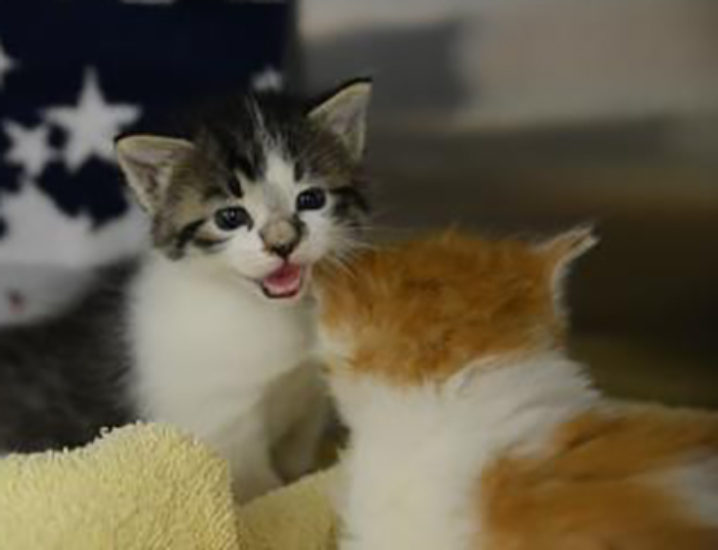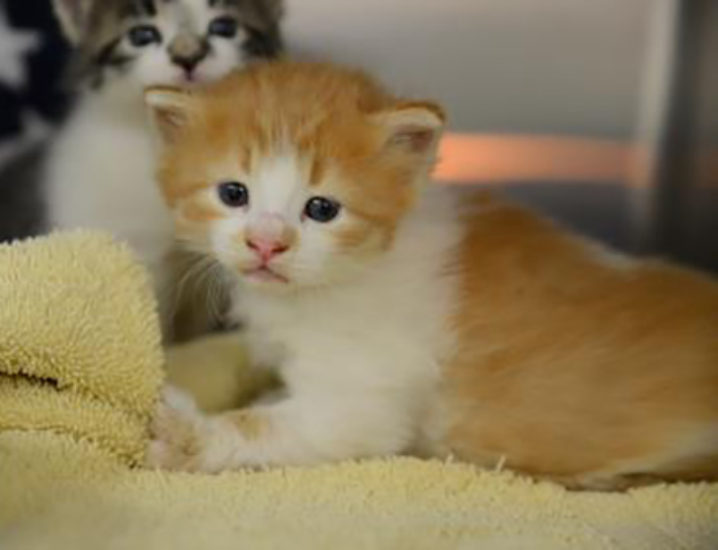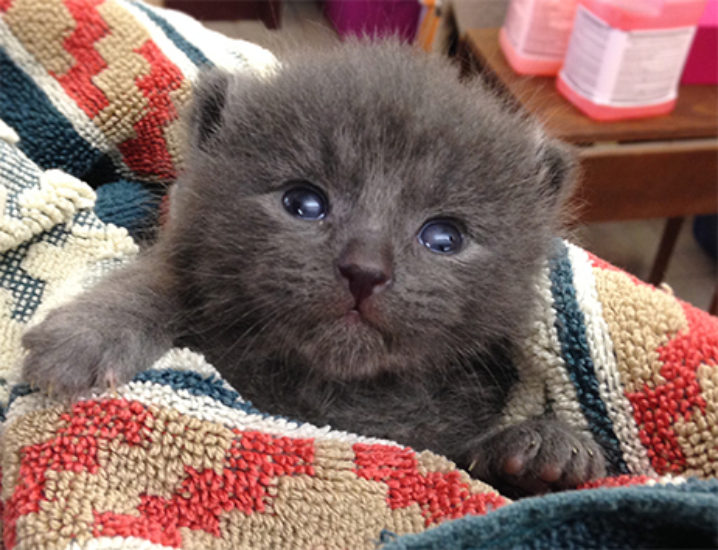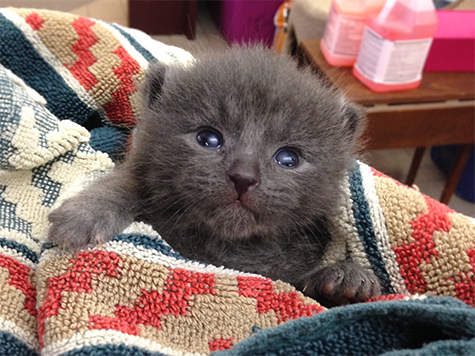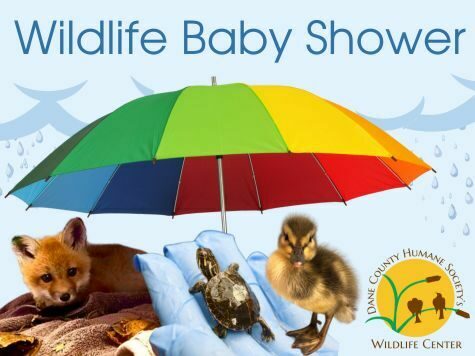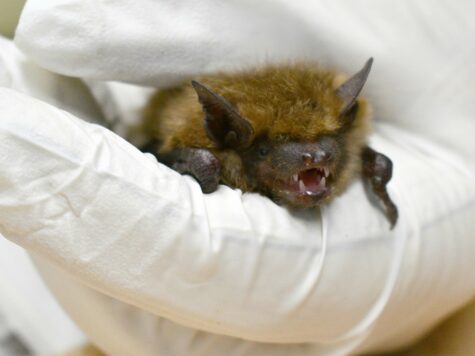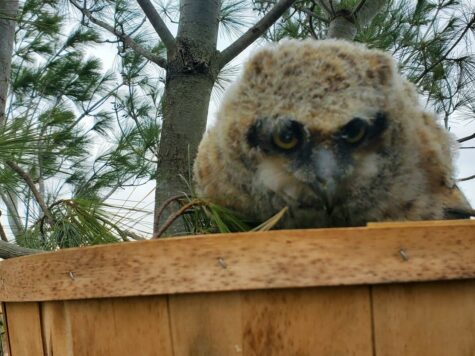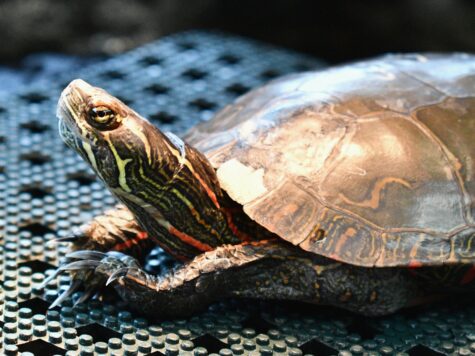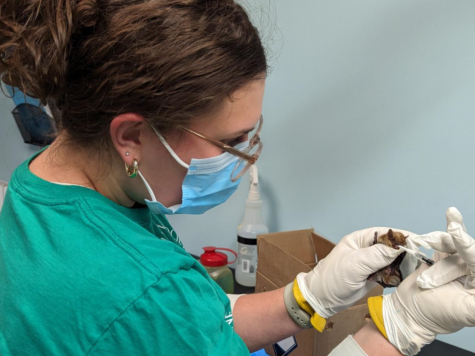One would never know how much work a mother cat does in feeding her newborns until one tries to replicate her expert mothering. Unweaned or neonatal kittens under the age of 4 weeks need to be fed every 2-4 hours day and night. Usually the kittens with their hungry mews and cries announce the feeding times. Before each feeding, there is a special milk replacement formula that needs to be heated - not too hot and not too cold. Each kitten is wrapped like a burrito in a small towel, and then presented the angled bottle as they rest on their bellies. Feeding can be a messy process. Once they have had their fill, all spilled formula on fur needs to be cleaned with a warm, wet washcloth, much like a mother cat’s tongue would. Afterwards, the kittens are burped with tiny pats on their back. Finally, before they are returned to their cozy resting quarters, each kitten needs to be encouraged to eliminate. At their young age, they are not able to take care of ‘business’ on their own, so it is crucial that they are encouraged.
During a weekend afternoon, a phone call from Dane County Humane Society (DCHS) brought a halt to my usual hurried attempts to get things done. “Would you be able to foster three 2-week old kittens?” Knowing that my life was about to be regimented into a schedule of daily feedings around the clock with very little sleep, my reply was “Of course!” The kittens needed me in order to survive. These kittens, George, Martha and Tabitha, were found stray in a small park in Madison, WI.
The influx of kittens arriving at animal shelters is known as “kitten season” and during this six month period between May and October DCHS will take in 80% of the year’s kittens. In 2018, 108 neo-natal kittens were placed in DCHS foster homes.
Some of these kittens may be born in our care while others are found stray, sometimes with their mother and other times orphaned. If you find a nest of stray kittens often the mother cat will run off only to return later at night to move the nest. If you find a nest, try to see if the mother returns in 4-5 hours. A mother cat really is the best option for kittens in getting the best nutrition and care. You can set a live trap for the mother cat and bring the mother cat and her kittens in together to the shelter. Please always call DCHS (608) 838-0413 if you have any questions.
DCHS has a group of seven ‘hard core’ families always willing to foster neonatal kitten and another five to seven families taking in kittens as often as they can. It takes dedication and lots of patience to be a neonatal kitten foster parent, as DCHS Foster Program Coordinator Eric Holsinger explains. “It’s a demanding task because, in a nutshell, these kittens are so helpless and fragile.”
With intake rising every year, the DCHS Foster Team is always looking to add more volunteers for a path that can only lead to sainthood. Foster volunteers of neo-natal kittens are first prepared by receiving training at the shelter. When they pick up their foster kittens, they are given all the supplies and tools that they will need: a supply of milk replacement formula, a bottle and nipples of various sizes, syringes (because sometimes at first, kittens do not take to the bottle right away), baby cat food, lots of towels, a warming disc – and most importantly, a complete support system.
“We support the foster volunteers as much as we can,” says Karrie Frantz, DCHS Foster Program Assistant. Foster volunteers are supported by the DCHS Foster Team, DCHS veterinarians, local veterinarians, and the foster volunteer group, itself. There will always be someone available to offer help when needed.
